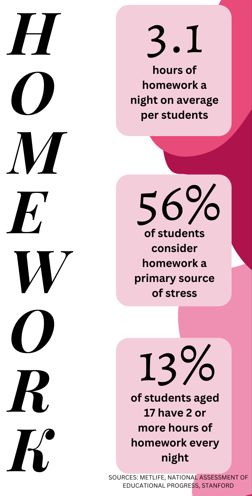Freshmen Orientation Isn’t Applicable
November 1, 2022
Every year, freshmen go through orientation before their first day at Creek to try to give them some semblance of the campus and course load. And each year, those in charge of introducing new students to Creek recycle the same borderline-useless presentation that provides minimal help to those first setting foot on campus.
Released into the confusing atmosphere of Creek in early August, ill-prepared freshmen have no idea of what to expect.
“The first day was rough,” freshman Joanna Kellner said. “I didn’t expect there to be so many tests at the beginning of the year and I didn’t expect it to be so fast paced.”
Transitioning from Campus Middle School to Cherry Creek proved to be a challenge for Kellner, with the only helpful resource being her older sister’s advice.
“I have an older sister that told me to not be late to class,” Kellner said. “There was a freshman orientation and [the teachers] just said to not stop in the middle of the hall because people will run me over.”
For some people, their siblings’ wise words were the only tips that they had before actually taking any classes. But those tidbits are just the basic aspects of high school.
The real problem came with the lack of information on workload and class schedules during the orientation. “We didn’t talk about specific courses or levels, it was very general. However my leaders did say that homework was based on teachers,” freshman Shraddha Mullangi said via text.
This forced teachers and counselors to pick up the slack. “The questions we get most are what the difference between CP, accelerated program, and honors classes are,” Gifted and Talented counselor Kacey Morgan said.
The freshmen orientation mentioned almost nothing about classes at Creek, the single most important piece of information that could have been given.
“It included a tour of the school, supposedly some tips on managing work, but my orientation group wasn’t doing that, and a meet with our counselors,” Mullangi said. “The only thing we were briefed on is what the homework load would be like, which wasn’t accurate at all.”
Part of the skewed perception of classes by freshman is the lack of support given by teachers in middle school. Because of COVID, Creek’s counselors were unable to visit 8th graders to help them wit their pre-registration. “This year, we’re going to the middle schools during pre-registration to try and help so we can fix some of these issues before they happen,” said school counselor Erin McClure.
To counter this great deficit of knowledge, Freshmen orientation should have focused more on classes and workload, rather than tours and icebreakers.
Sure, Creek’s difficult course load makes the expectancy of homework hard to predict. But students in honors and AP classes need to be introduced to these practices, because without any prior warning of the time commitment, these classes become even harder.
“I had no idea what an AP class would be like and I struggled. I still am struggling to adjust. I was told that AP classes would have at most 30 minutes of reading per week and a quiz or test every week. I would say the test part if accurate but the reading was not,” Mullangi said.
This lack of accuracy causes students to go into class with a skewed perception of what the course will look like. “Class changes or level changes happened a lot in the beginning of the year with new students and with freshmen,” McClure said.
For such a prestigious school, this underprepartion for freshmen is far more headache-inducing than it should be. This up-in-the-air problem has a solution just within reach if the school could ask freshmen directly what they need, rather than guessing.
“I personally would have felt a lot better if someone had told me that taking an AP class would mean sacrificing a lot,” Mullangi said. “I hope at orientation upperclassmen can give a speech about classes and just give a warning about them. The school could have a few people talk about their experience and provide tips and tricks. It would greatly benefit everyone.”
With each year, the orientation should cover more concerns that students have by listening to the problems that new kids struggle with during the beginning of the year.
A general survey, asking specific freshman with heavier course loads what could be improved upon for orientation, and even allowing freshman to shadow sophomores before the school year starts could all add perspective to the dysfunctional system.
With these useful and honest opinions, Creek will finally be able to live up to its rumored excellency, starting with freshmen.























